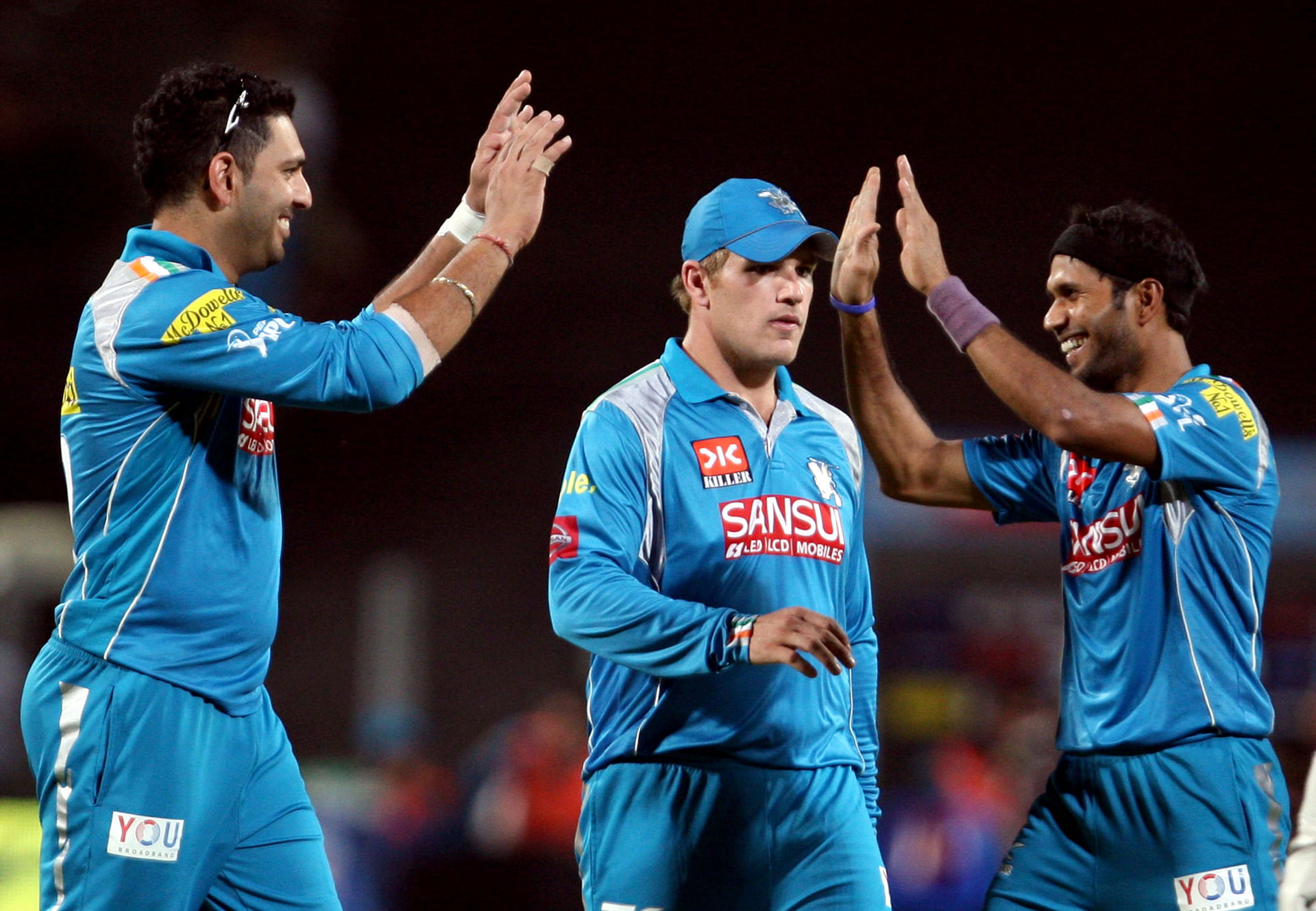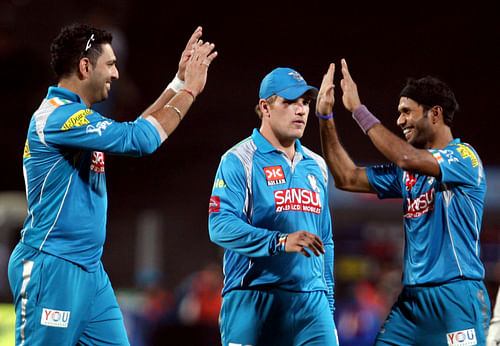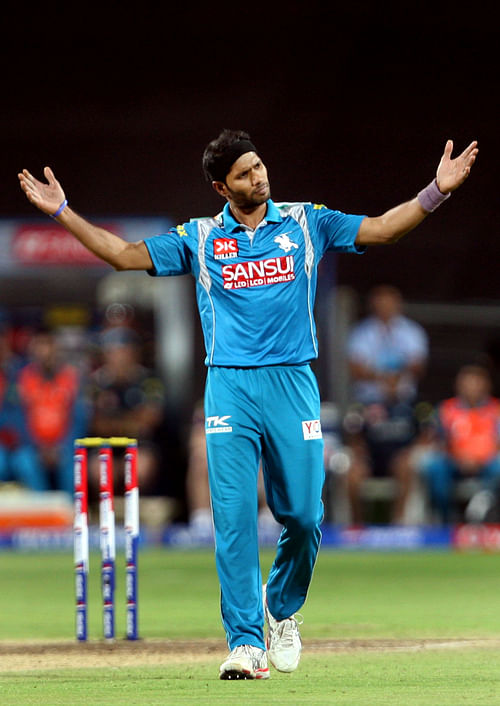
The baffling persistence of Ashok Dinda
I occasionally opened the batting for my school team, which was a rather large responsibility seeing that most matches we played were 20-25 overs per inning and a brisk start was an imperative requirement. However, I had a manic fear of bowlers running in very fast – a decidedly undesirable trait for any opening batsman to have especially in a generation where fast bowling is synonymous with fast running and a dreadful scowl easily recognisable for a mile away.
Thankfully, while my feet trembled in nervous anticipation, my opponent quickie exhausted all his energy in his 45-yard run up and in contorting his facial muscles, eventually delivered a gentle no-swinger outside off, where I witnessed the ball go through to the keeper with a satisfying smile. If on the rare chance the ball did happen to breach my wickets’ radar, I’d have ample time to have a cup of tea then drive it to the nearest boundary rope.

Ashok Dinda celebrates with Yuvraj Singh and Aaron Finch after dismissing RCB’s Saurabh Tiwari during the 46th T20 match in the Pepsi IPL-6 at the Subrata Roy Sahara Stadium, Pune, 2 May 2013. (IANS Photos)
Pune Warriors India have established themselves to be the minnows of the league, almost reserving a wooden spoon by just confirming their participation. They have players with vast amounts of talent, so much so that a dash of Chemical X could turn them into the Powerpuff Girls, but their atrociously incompetent organisation and poor decision-making negates all of that to dump them at the bottom of every table.
Staunch supporters (if any) would argue that being the infants of the tournament, Pune need to be given time to establish themselves among the experienced likes of Chennai and Bangalore, but I’m entirely convinced that what Pune needs is not time, but a earful, reminiscent of mother yelling at her brat of a son. To have such excellent players, all in the prime of their careers, and failing over and over again is plain irresponsibility.
In their previous game against RCB, Pune seemed like they were turning the screw on their opponent and making a good account of themselves. That’s until Ashok Dinda happened.
Dinda is the prime example of the kind of bowlers and bowling I faced when I opened the batting. With his menacing glare and threatening eyes, Dinda resembles a very angry mouse while going through his rugged run up before jumping at an extreme height and delivering only to see the ball lodged between seat 24A and 24B a few seconds later.

Dinda may have taken 12 wickets this season but has proved to be rather expensive, especially in the death overs. (IANS Photos)
What’s even more baffling than Dinda’s charade of aggression is Pune persistence to play the man day in and out. What is further baffling, and barely threading the line of absurdity, is their constant ignorance of the one named Bhuvaneshwar Kumar who has proved to be a far better bowler than Dinda and more importantly, a far more responsible one.
Dinda, the apparent front-line pace bowler of the attack, has an enormous economy rate of 9.97 in this year’s IPL, yet has bowled the most number of overs for his team. Yes, he has picked up the highest wickets among his team members as well (12), but this is a clear example of incorrect placing of priorities.
T20 is, whether agreed or not, a batsman’s game. The good length ball is now so only by name and we know this after seeing the likes of Chris Gayle and AB de Villiers decimate anything that is not right up to their toes. When you begin paying little attention to the runs leaking out and instead, hailing the number of wickets taken, you get a player like Dinda, who clearly has an inflated opinion of himself and needs to desperately be pulled down back on to earth.
Bringing Kumar to the centre stage should be the new Pune plan of action. He’s done remarkably well for them, picking up eight wickets at an economy rate of 6.35. He’s certainly proved that he has a level-head and indicated that one does not need to be a hot-head in order to be a fast bowler. Praveen Kumar, Sreesanth, and Dinda are all examples of talented bowlers who exhausted their energy in glaring rather than putting it in the right areas, and the state of their careers is self-explanatory.
They have more chance of choking and dying on the field than qualifying for the play-offs, but they could be the team that could make or break other teams’ chances if they improve – a role they’d gratuitously accept with open arms after suffering a season of destruction, distress and Dinda.